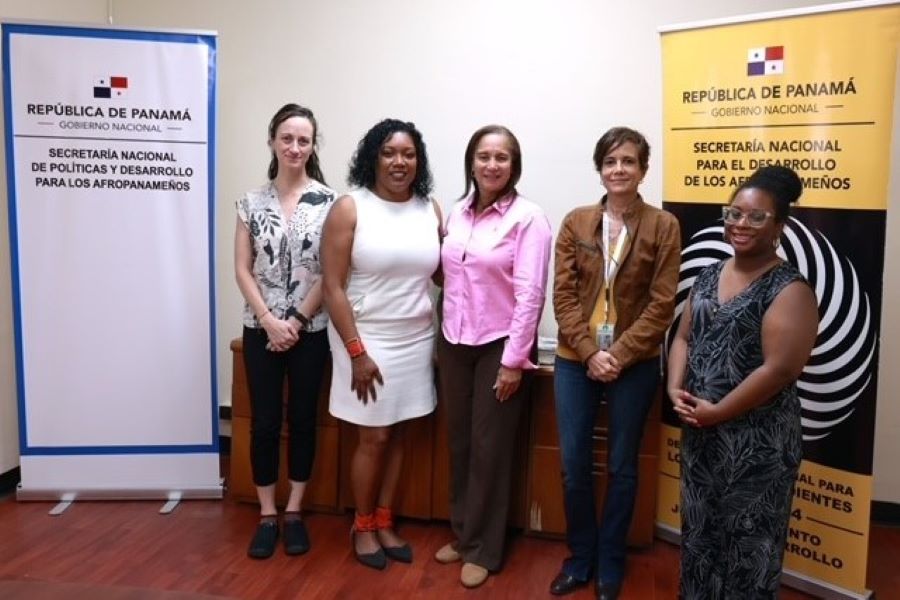
[ad_1]

Florida State University’s Center of Population Sciences for Health Equity (CPSHE) is partnering with the Institute of Scientific Research and High Technology of Panama (INDICASAT-AIP), a biomedical analysis institute within the Republic of Panama’s City of Knowledge, marking a major step towards advancing world well being analysis.
The City of Knowledge, a government-sponsored hotspot for educational organizations, tech corporations and non-governmental organizations, can be the house of FSU’s branch campus in Panama.
This collaboration brings collectively the neighborhood engagement experience of CPSHE’s management, identified for its dedication to advancing inhabitants sciences and selling well being fairness, and INDICASAT-AIP, a number one establishment in scientific analysis and excessive expertise in Panama.
Three researchers from the CPSHE, which is housed in FSU’s College of Nursing, have been appointed assistant researchers with INDICASAT-AIP for the following three years. As a part of their affiliation, CPSHE founding director Frankie Wong, co-director Eugenia Millender, and assistant director Casey Xavier Hall will collaborate on grant submissions, mentor doctoral college students, current at conferences, and supply assist and experience in main investigative research.
Jing Wang, dean of the FSU College of Nursing, mentioned the partnership is an instance of how worldwide collaboration can speed up progress towards world well being fairness.
“By combining the expertise of both institutions, we can make a real difference in the lives of people in Panama and beyond,” Wang mentioned. “This project has the potential to address health disparities in Afro-Panamanian communities and serve as a model for future research initiatives that prioritize community engagement and social justice. I am incredibly proud of the leadership role CPSHE is playing in this groundbreaking collaboration, and I look forward to seeing the positive impact it will have on the world.”
The CPSHE and INDICASAT-AIP will work towards decentralizing the kind of analysis that’s performed in Panama by participating in additional community-based research and together with the Afro-Panamanian inhabitants. The objective is to deal with well being disparities and belief problems with the inhabitants inside science and well being care internationally.
“This collaboration highlights a shared commitment to advancing research and fostering international partnerships in the realm of health equity,” mentioned Gabrielle Britton, the INDICASAT-AIP’s director of analysis for the Center of Neuroscience.
Millender and Britton are engaged on a research targeted on cognition and well being disparities in Afro-Panamanians and goal to construct a community-based participatory program that extends past this single challenge. The research will use CPSHE’s experience in community-based analysis to interact and join with the Panamanian neighborhood and construct upon the institute’s dedication to growing older analysis and cognitive well being research.
The Gorgas Commemorative Institute for Health Studies (ICGES) in Panama and the National Secretary of Policies and Development for Afro-Panamanian (SENADAP) will assist the challenge. ICGES is the nation’s main group for facilitating and conducting well being analysis and the place Wong and Millender are courtesy research associates. SENADAP is a Panamanian authorities entity answerable for supporting and advocating for tasks aimed toward strengthening and selling the social, political, well being and cultural rights of the Afro-descendant inhabitants in Panama.
“This joint effort with INDICASAT, ICGES, and SENADAP signifies a significant step forward in our commitment to global health research and collaboration,” Millender mentioned. “By combining our strengths and resources, we can make a lasting impact on health outcomes globally.”
Britton drew parallels to the challenges confronted by the Black/African American neighborhood within the United States and the well being disparities skilled by Afro-Panamanian communities in Panama.
“Just like in the United States, in Panama, Black people are at higher risk for a number of different illnesses and conditions because they don’t have full access to health care or they reach health care later than most people,” Britton mentioned.
Panama ranks because the second-most unequal nation among the many Americas, notably affecting the historically Black populated metropolis of Cologne. The metropolis grapples with extreme well being issues, together with the best charges of HIV and tuberculosis. Britton stresses the significance of addressing these points by way of science, specializing in producing information to affect public coverage improvement and dismantle ingrained social buildings.
“In Panama, just like in most countries in the world, African descendants are underrepresented in research,” Britton mentioned. “We need to have more because in Panama, they represent a significant proportion of the population.”
Notably, the collaboration coincides with the Center for Disease Control and Prevention (CDC) shifting its regional headquarters from Guatemala to the U.S. Embassy in Panama. Britton anticipates the CDC’s affect will enhance information assortment and public well being analysis in Panama, including a layer of significance to the partnership.
For extra details about the CPSHE, go to cpshe.fsu.edu.
[adinserter block=”4″]
[ad_2]
Source link